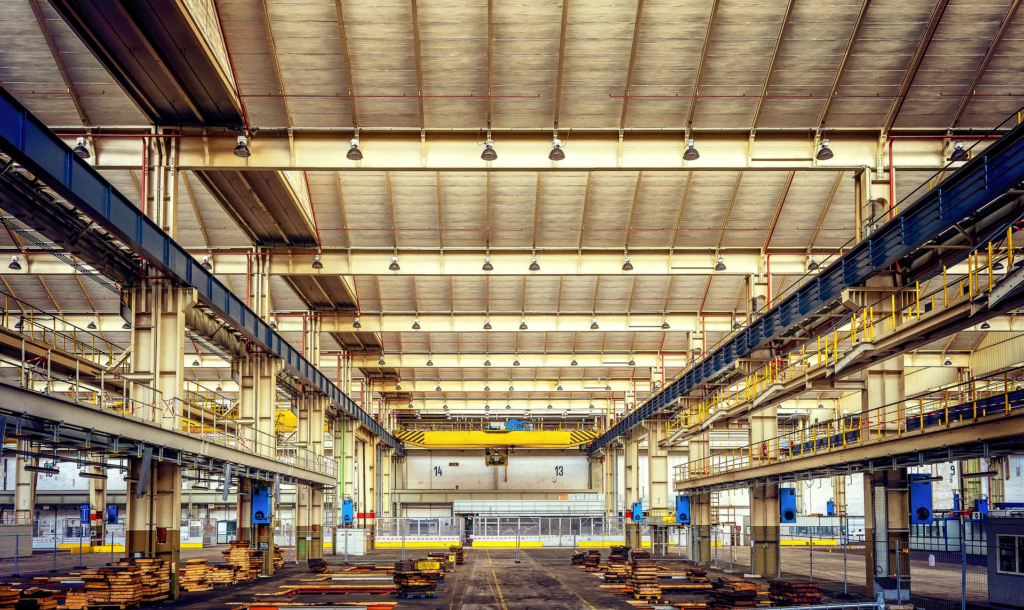The images of cement floors, cinder block walls, and tall, metal shelving typically come to mind when someone mentions industrial commercial real estate (CRE). But that is only one aspect of the industrial sector. Warehouses, flex space, manufacturing buildings, and data hosting centers are all considered industrial CRE. These buildings and the land they occupy come in a variety of sizes. Some even have very specific requirements, such as the ability to house a substantial amount of cold and refrigerated products.
The tenants that occupy these types of spaces are as unique as their property needs. Tech companies, distribution companies, equipment rental businesses, and plenty of other types of organizations all need industrial space for their businesses. Because of the need for industrial space, this category of CRE is experiencing an interesting set of trends this year. Here are a few insights we are tracking for the industrial sector in 2020:
The Recent Years of Industrial CRE
According to Deloitte Insights, the industrial real estate sector saw a net absorption of almost 1.4 billion square feet between 2014 and 2018. Growth is evident in the FTSE Nareit Industrial REITs Index, with a total return of 16.2% in the five years leading up to April 2019. In comparison, the REITs for the office sector and retail sector had 7% and 4.6% returns, respectively. But, due to a few macroeconomic factors, technological shifts, and last-mile delivery trends, the industrial sector may face some challenges. The design and space requirements of potential industrial tenants will play a role in the future of industrial CRE demand.
What’s to Come in Industrial CRE
Experts are anticipating industrial CRE demand to increase to 14.8 billion square feet by the year 2023. Significant increases in e-commerce sales are driving demand. Because of their recent double-digit gains, e-commerce businesses need more space to fulfill customer orders.
Between 2013 to 2018, e-commerce companies tripled their deliveries. They began occupying more facilities in urban locations in order to quickly reach more customers. And as a by-product, these companies needed additional space to handle return products. Companies typically need 20% more space to process returns than regular orders. Deloitte Insights teams forecast e-commerce will account for 14.8% of retail sales by 2023, which means more companies will need access to industrial CRE.
For the immediate future, experts are expecting the tight market to yield more lease renewals and a 5% increase in industrial rent prices. But in the long run, however, continued growth in the industrial real estate sector may slow down. The annual demand growth rate could drop just below 0.9%. The supply will be greater than the demand for the first time since the recession in 2008.
The Influx of Industrial Availability
Deloitte Insights is forecasting the availability rate to increase from 0.7% to 10.3% by 2023. Many companies are beginning to see the benefits of adaptive reuse. Unused parking garages are becoming storage areas. Retail companies are transforming some of their unused spaces into small warehouse-like facilities. Some nonindustrial CRE owners are even converting their vacant spaces into warehouses for renters to utilize as storage and distribution space to serve their local customers. The availability of industrial space will likely impact the rent prices for potential tenants and investors.
The ability to transform industrial CRE into a variety of uses makes it a unique opportunity for investors and a huge advantage for tenants. It’s clear that technology and e-commerce will continue to be a driving force in the future of the industrial sector. And we are looking forward to watching the industrial sector trends unfold in 2020.
If you are interested in learning more about investing in commercial real estate, or if you have questions about buying, selling, or leasing a commercial property, please contact an HBRE advisor. Our team of experienced CRE professionals have the skills and insight to assist with all property transactions. To reach out to us directly, email [email protected] or call 615-564-4133.




